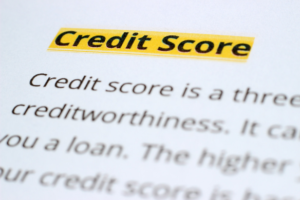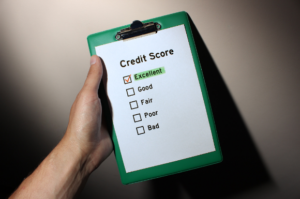By Lina Martinez
Credit scores are one of the most talked about topics in the financial world. Consequently, there tends to be so much information about them online. Sadly, a lot of this information is more fiction than cold hard facts. As a result, we’ve decided to take a look at the biggest credit score myths, and debunk them once and for all.
A Bad Credit Score Stays With You Forever
Some people are led to believe that a bad credit score stays on their back forever. There are numerous examples of people I know that have worried about applying for credit because they once had a very bad credit score. Is a bad score in the past something to worry about in the present and future?
Truthfully, no, it really isn’t. A bad score will only hurt you in the present moment, for as long as it remains bad. As you can see on bankrate.com, there are loads of ways you can improve your credit score. It’s something that fluctuates over time depending on your financial behaviour. If it was once bad but is now good, then you don’t have to worry about the past at all. When you have a credit check against you, they’ll only look at your current score and nothing else.

Your Credit Score Is Based On Applying For Credit
Many of us believe that a credit score is made up simply by looking at our credit applications. People will tell you that the more credit you apply for, the lower your score will drop. There’s a lot of truth in this statement; your score does drop when you apply for credit. This is simply because applying for any form of credit is seen as a potential financial risk. People that rarely apply for any credit and owe very few people money will generally have better credit scores.
However, this isn’t the only thing that your score is based on. There are many other factors of your financial activity that come into play. If you visit experian.com, you’ll see a whole list of other things that combine to make your credit score. This includes things like bankruptcies, payment history, debt, and so on. So, no, your credit score isn’t solely based on your number of credit applications.
You Need A Good Credit Score To Get A Loan
Incorrect, well, partially incorrect. There are some loans out there that do require you to have a good credit score. Furthermore, some lenders only give out loans depending on how good your score is. For example, it’s rare to find a bank that will hand out a mortgage to someone with a bad score. So, in this instance, you do need a good credit score to get a loan.
However, saying this is the rule for every scenario is just plain false. You can still get various loans even with a bad credit score. If you visit DebtConsolidationUSA.com, you will see that debt consolidation loans are available to people with bad credit. There are personal loans, car loans, and a lot of other loans available as well. Mainly, it depends on how much money you’re borrowing, and the lending institution. Typically, you won’t be able to apply for as good of a loan with bad credit compared to if you had good credit. But, the fact remains, you can still get loans with a poor score.

You Can Damage Your Score By Checking It
Checking your credit score is a normal thing to do as you’re keen to know the state it’s in. This isn’t something you get in the mail every month or see on your bank statement. You have to actually go out and check it. Some people believe that doing this will damage your score and lower it. However, this is only true if you check your score in the wrong way.
The right way to check your score is to do it through a credit score checking service. This won’t hurt your score at all, and you can do it as often as possible. The wrong way is to check your score by applying for credit. As mentioned earlier, applying for credit can lower your score slightly. But, most people will only ever check their score when they apply for loans, and the lender does the check for them. Don’t do this as it will hurt you. But, use the right credit checking services, and you can see where you’re at without worrying about damaging your score.
People With Low Income Will Have Bad Credit Scores
Another very common thing that’s thrown around is this idea that having a low income will automatically grant you a bad credit score. This is built around the ideology that the more money you have, the better your credit score will be. Like a lot of the things on this list, there is some truth behind these claims. For one, having more money means you’re less likely to be at risk of certain factors that lower your credit score. As an example, you might be clear of any debt, and you may not be applying for lots of credit. Both of these factors could apply to poorer people who may depend more on credit and be in debt.
Having said that, there are many instances where someone that earns a low income has a better score than someone that earns way more than them. It all boils down to money management and how good you are at it. You can earn minimum wage and be so good at saving money that you’ve got no debts, don’t depend on credit, and pay all your bills on time. The myth here is that your income affects your credit score when it simply doesn’t.
There’s a high chance you believe a lot of the things mentioned in this list. Hopefully, this article has helped clear everything up and present you with the facts. Yes, there is some truth in many of the things suggested here. However, a lot of the time, they’re generalizations that don’t apply across the board. Use this post to help you understand credit scores without worrying about fact or fiction.



Recent Comments